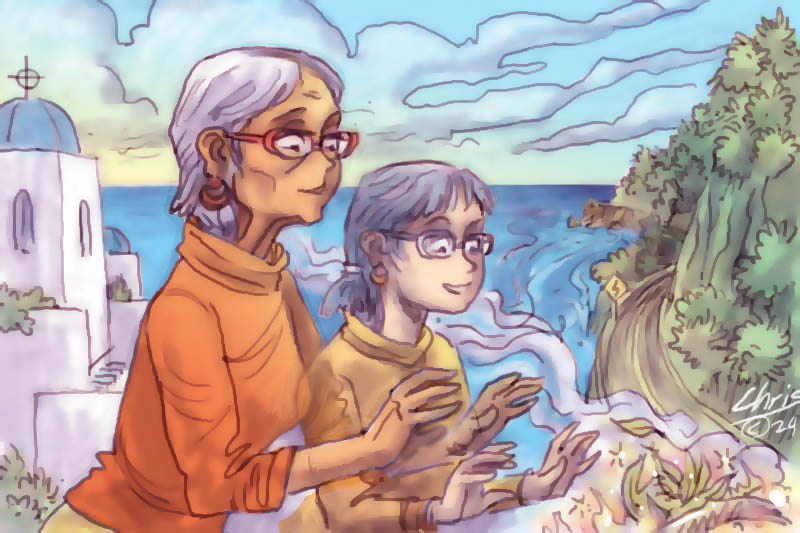It is nearly five months since I returned from Melbourne, my native city. Long resident in the Peloponnese, Greece, I had not been Down Under for five years. My long-ago settling in Greece had been very unexpected, not my idea at all, but my numerous trips back to Australia have also been unexpected: I’ve been very lucky to have had so many.

This most recent trip, however, was different, for you reach a certain stage at which life starts to speed up and time starts to gallop, and I’m at that stage now. When you are away, separated from the past and from loved people, particularly at first, you do your best to fool yourself that places, people, their customs and opinions, all the things you have in common, remain the same. But it is just not so. In an uncertain world, perhaps the one certainty is that of change, a notion that reminds me of David Malouf’s idea that we are all exiles, even those of us who never leave home, for this is the effect that the passing of time has: familiar worlds become strange no matter where we are.
The most significant and wounding change involves loss. My parents and their generation are all dead, and so is my (younger) sister. A friend died just days before I arrived in Melbourne, and another friend died shortly after I returned to Greece. As time passes, our ageing and faulty genes catch up with us: the failing health of many people came as a shock to me, for I had not been present to see the deterioration begin. Such deterioration made me remember my grannies and their regular exhortation to count my blessings. Which are many. So I’m busily counting, even as I wonder what is happening there while I am here.
Of course there are other forms of loss. I cannot be restored to my brother and my cousins in the same old way, even though I remember times past very well, and often think of the road not taken, that one that would have kept me in the land of the known and familiar. The whole matter of other roads and worlds and consequent homesickness preoccupies all sorts of people. Like writers. Paul Scott made one of his characters say that the migrant is always tapping at the window of his past. Kate Morton has written that home is a sense of being complete, that the opposite of home is not away but lonely.
And different cultures have their own labels. In Portuguese, saudade, based on the word for solitude, means a longing for a place or person that is absent, and includes the idea of a love that remains. In Brazil there is even a Day of Saudade. The Welsh have the concept of hiraeth, which means a feeling of deep yearning, especially for one’s home. In Greek the idea is expressed in nostalgia, which word has acquired a wider meaning in English, in that it can mean a longing for former times rather than places. The list of such words is probably almost endless.
Of course the saudade/hiraeth/nostalgia differs from person to person. Australian actor Cate Blanchett considers Australia a magnetic place, and has mentioned its sounds, shadows and shapes. A Czech friend of mine, who has not lived in the republic for forty years, remembers the scents of her native land. (When she told me this, I recalled the reaction of Charmian Clift and George Johnston when somebody burned gum leaves under their noses.) Then there’s the shorthand of conversation that becomes automatic when you are in your place of origin. And the old recurring question Remember when…? Along with its various answers.
For me the yearning, which never quite goes away, comprises many things, including landscape. I’ve known a variety, from the edge of Victoria’s Little Desert to the grandeur of the Great Ocean Road and the well-remembered bush. Not to mention one or two rivers. And every time I am back I think that this is what I grew up in, this is what I know. I mentioned this notion to a friend with a rare literary sensibility, and she immediately referred me to Judith Wright’s Train Journey, in which a passenger, the first-person narrator, looks on the view from the night train and thinks of it as the country that built her heart.
On the other side of the world the Irish poet Derek Mahon asked the compelling question: How can we not love the first life we knew?
How not, indeed?
Gillian Bouras is an expatriate Australian writer who has written several books, stories and articles, many of them dealing with her experiences as an Australian woman in Greece.
Main image: Chris Johnston illustration.